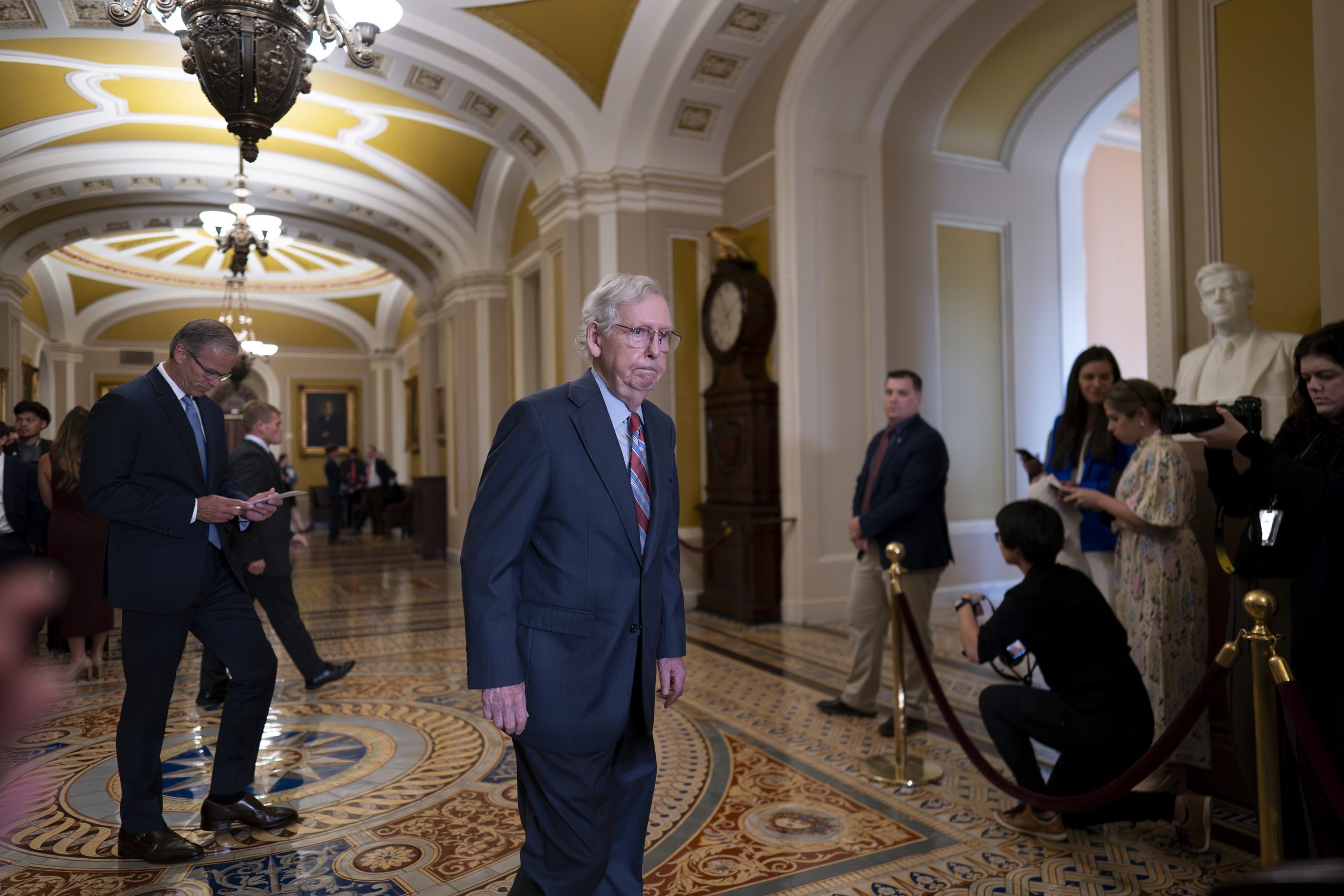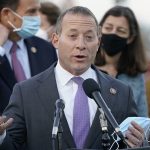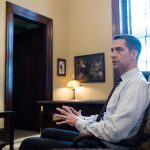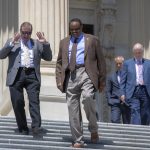Something is going on with Mitch McConnell, and no one seems to have a clue what it is.
When McConnell fell during a fundraiser in March and was absent from the Senate for several weeks, the minority leader’s team moved to quickly tamp down suggestions that his concussion was worse than they’d let on.
When he suddenly froze for more than 15 seconds while speaking to reporters just before August recess, his allies suggested he was just “dehydrated.”
On Wednesday, McConnell, 81, again stopped short after being asked at an event in Kentucky if he was running for reelection in 2026 — this time, for a half-minute. His office’s explanation? He was “momentarily lightheaded and paused during his press conference today.” The video — which is difficult to watch — doesn’t suggest a voluntary pause on his part.
If the Kentucky Republican’s health was a concern before, it’s ballooned into a serious worry now.
The GOP leader’s latest health scare has sent the congressional rumor mill into overdrive, triggering questions about both his health and his political future. And yet, McConnell’s operation is saying very little. In that absence, both reporters and McConnell’s own rank and file are left to speculate about what’s happening.
How frequently are these bouts occurring? Are they seizures? Miniature strokes? Are they the byproduct of his concussion? Has he seen a neurologist?
Wednesday’s incident was bad enough that McConnell’s office said in a statement that he would see a doctor. But it seems unlikely that they can go much longer without revealing more about his condition. As National Review’s Philip Klein wrote Wednesday, “it’s one thing for something to happen once, but when it happens twice, and in a progressively worse way, it becomes harder to sweep under the rug.”
Publicly, senators have said little — or if they’ve weighed in, they’ve defended McConnell and wished him well. Members of the upper chamber have long operated under a there-but-for-the-grace-of-God understanding, fearful of calling for ill or aging members of the opposition party to resign lest they one day find themselves in a similar situation.
It’s why Senate Republicans didn’t harp on John Fetterman (D-Pa.) over his hospitalization for depression, or Dianne Feinstein (D-Calif.) for her longtime absence for complications from shingles (and her general aloofness upon her return). Likewise, Democrats didn’t go after Mark Kirk (R-Ill.) following his stroke or Thad Cochran (R-Miss.) as he shuffled around the Senate appearing to be lost.
Of course, none of those members were serving in leadership. And where past senators (most recently New Mexico Democrat Ben Ray Luján) have put their doctors forward to explain their health challenges, McConnell has not.
In private, some Senate Republicans are starting to press for more information about the man who has led them since 2007 and is the longest-serving Republican leader in history.
“If we’re going to stick with him, he kinda owes it to us to tell us what’s going on,” one GOP aide from an office allied with McConnell, granted anonymity to speak openly, told Playbook Wednesday night.
On the outside, some conservative commentators are less diplomatic. While he wished McConnell well, National Review’s Klein, for example, wrote that “it’s tough to see how much longer he can serve as the highest-ranking Republican in the Senate if he is not in a position to handle basic questions from reporters.”
“This is especially true given that Republicans plan to make President [Joe] Biden’s age and declining mental state a central part of their argument against him next year,” Klein wrote.
McConnell, who beat polio as a child, has long been extremely guarded about health matters, even as other lawmakers have become more transparent. McConnell hails from an old-school mentality where he shies away from talking about his challenges, and certainly doesn’t want to be seen as trying to win pity.
That’s why even some in his inner circle don’t know what exactly he’s ailing from. Most appear to believe the freezing episodes are just part of his recovery from his concussion and insist they won’t hinder his ability to serve.
Scott Jennings, a longtime McConnell confidant who was with McConnell all Wednesday, the day before and much of August, insisted that despite what happened, McConnell took questions for 20 minutes, held a fundraiser for Rep. Jim Banks’ Indiana Senate run and participated in a roundtable with voters. Jennings also insisted that his speech and memory seems as sharp as ever.
“He held command of the issues. Talked about the political map and the Senate map,” Jennings told Playbook. “It was like business as usual — McConnell, fully focused and handling his duties.”
McConnell, meanwhile, called top Senate GOP allies to assure them of his ability to lead. In recent weeks, his allies have made a point of noting that he’s out and about, attending events in Washington or Kentucky as usual. He was spotted at an MLB gathering the night after his first freezing episode — even as at least one Senate Republican told Playbook they wanted him to go to the hospital instead. On Wednesday night, Banks tweeted out a picture of him and McConnell talking at his fundraiser.
Still, the situation has fueled speculation about McConnell’s future, even as his office insists he will serve out his full term. That’s likely to crescendo next week, when the Senate returns from recess — particularly if McConnell skips his daily morning floor remarks, doesn’t hold his fly-in day leadership meeting or doesn’t gaggle with reporters after weekly conference lunches.
At the moment, none of his members are calling for him to step down as leader — though five of them could force a conference to discuss the matter.
Not even Sen. Rick Scott (R-Fla.), who ran against McConnell for leader last year and has publicly warred with the GOP leader before, is willing to go there — at least not yet. “I expect he’ll continue to be the Republican leader through this term,” he told CBS Wednesday. “We’ll have another election after the 2024 elections.”
But if the episodes continue — and if McConnell’s team continues to keep both his colleagues and the American public in the dark — that could change.


















